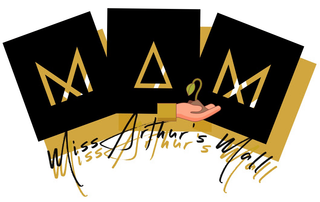Child development in Feltham
Miss Arthurs Mall offers various child development programmes in Feltham. Speak to a member of our team for more details.
Physical, emotional and social development
Auditory
Our home decor collection
One of the traditional five senses. It is the ability to perceive sound by detecting vibrations via an organ such as the ear. It affects so many areas of life such as speaking, listening, thinking and learning. Good hearing skills influence how easily children learn and develop other skills.
Coordination
Coordinated controlling of eye movement with hand movement, and the processing of visual input to guide reaching and grasping. It refers to the way of performing daily life tasks such as writing, feeding and picking up a book from a table.
Fine motor
It involves a refined use of small muscles for tasks such as controlling the hands, fingers and thumb. It allows one to complete tasks such as writing, drawing and buttoning.
Gross motor
It refers to the movements of the large muscles of the body. It is necessary for major body movements such as walking, maintaining balance, coordination, jumping and reaching.
Visual
It is an ability to interpret information from visible light reaching the eyes. The resulting perception is also known as eyesight, sight or vision. It helps children to understand what they see, recognise and identify different qualities that help them judge size, color, shape, spatial relations and other things.
Emotion
It refers to a child’s ability to control their feelings and how they react to these feelings in a given situation
Imagination
Imagination is symbolic representation, the use of concepts and images to evoke or represent real-world entities, or the use of one set of real-world entities to evoke others (e.g. as when a child uses a banana as a phone in pretend play).
Musical
Gaining a huge amount of pleasure from learning a musical instrument; it can also boost the development of vital skills. Learning to play an instrument provides children with a range of skills, many of which are transferable and appropriate to various different situations. Helping improve motor skills, as there are special techniques you need to use to master each instrument. Children feel part of a group and have a sense of belonging.
Social
Social play is the best mechanism for progressing through the different social stages. Children learn social rules such as give and take, reciprocity, cooperation and sharing. Children also learn to use moral reasoning to develop a mature sense of values. They will be prepared to function effectively in the adult world.
Intellectual and language development
Concentration
Personal shopper services
Keeping the children's mind focused on one thing for a certain amount of time is called concentration. When children pay attention to their toy while they play, they require concentration in order to understand what information to be extracted.
Creative
Play helps each child to develop creativity and imagination. Creativity also fosters mental growth in children by providing opportunities for trying out new ideas and new ways of thinking and problem-solving.
Explore
Stimulating children's experience through an unfamiliar area in order to find out what it is like.
Language and communication
Development of an ability to listen, to understand what is said, and to speak to others is called communication. It is also the ability to see and understand the use of conversation, written language and to write and read. Language is a learned code, or system of rules that enables children to communicate ideas and express their wants and needs.
Logical
The process in which child uses reasoning consistently to come to a conclusion is called logical thinking. Problems or situations that involve logical thinking call for structure, relationships between facts, and chain of reasoning that “make sense.”
Mathematical
Developing a child's mental thinking about mathematics which involves learning about various sizes, colours, shapes, balance, numbers, symmetry and counting.
Learning through focus and attention
Keeping children focused on toys and activities they are interested in helps lengthen attention spans and promotes memory.
Problem solving
Providing the opportunities for trying out new ideas, new ways of thinking and try to solve a problem or obstacle.
Adaptive toys
Pre-Braille
Call us
It is not a separate language but is a method of learning in which letters and words are represented using raised dots.
Pre-Braille skills include the tactile discrimination and exploration of interesting objects and toys before learning the Braille cell system.
Sign language
Sign language refers to communication through signs and visual gestures. Body posture and facial expressions used with hand signs allow visual versus auditory communication.
For a free telephone consultation, speak with our team in Feltham, UK on
+44 (0)7447 868 619


